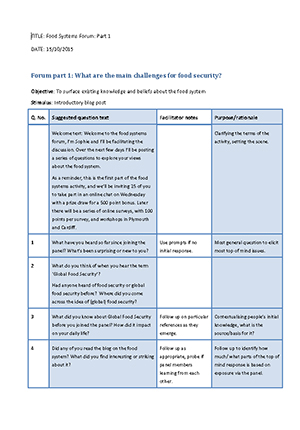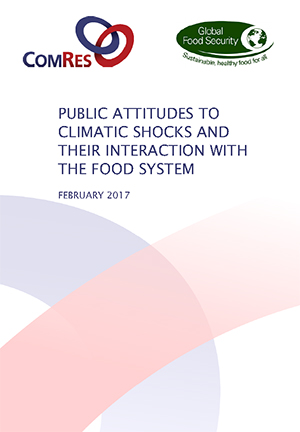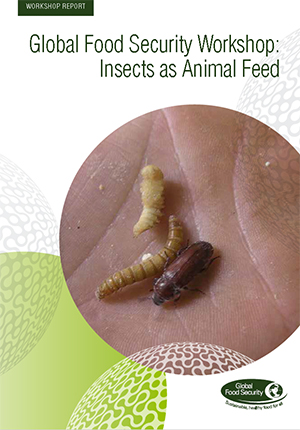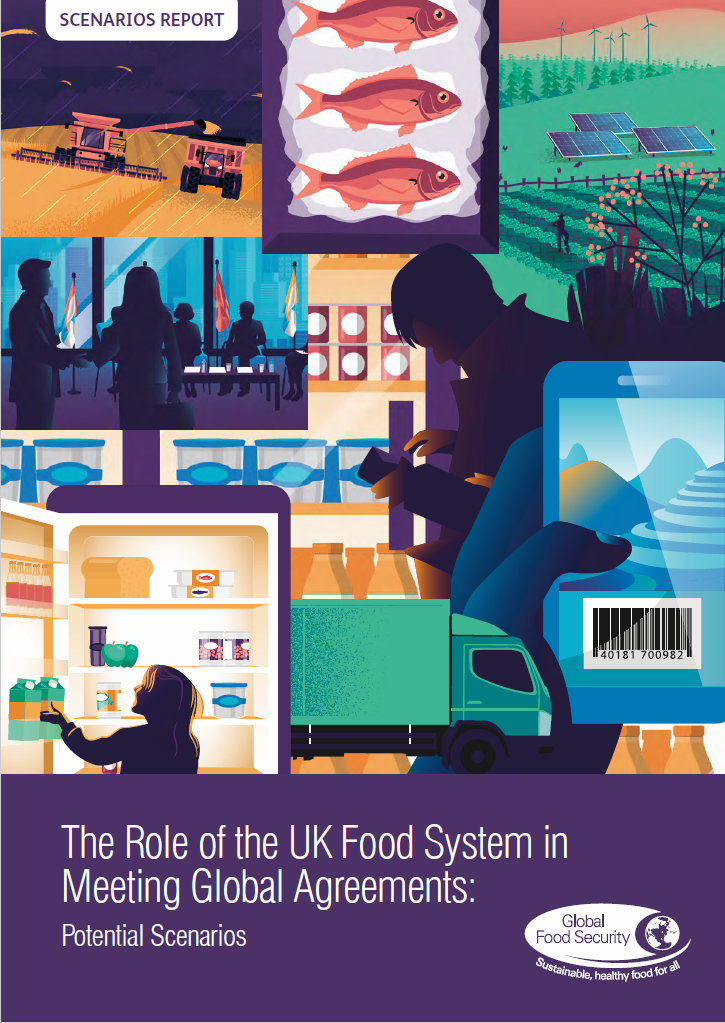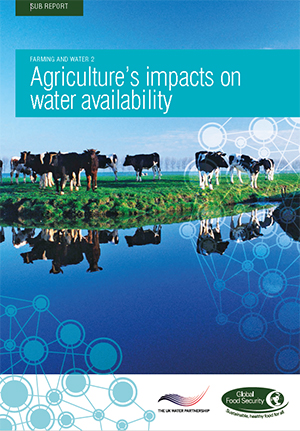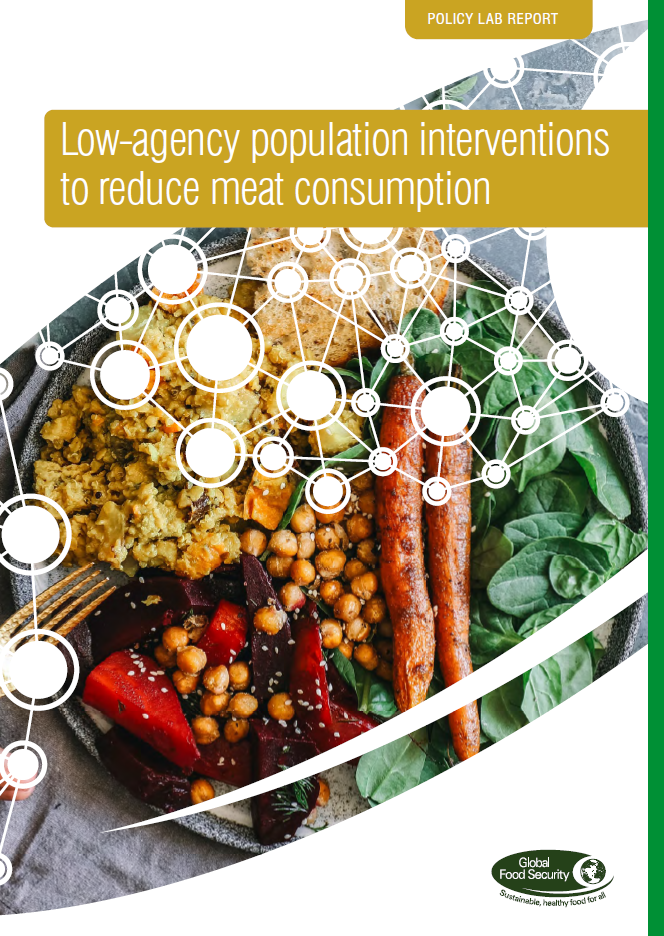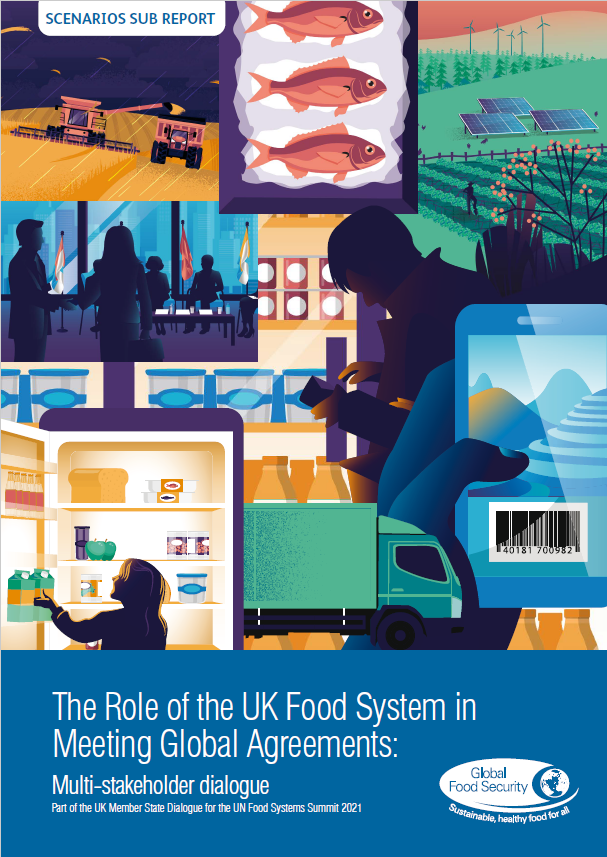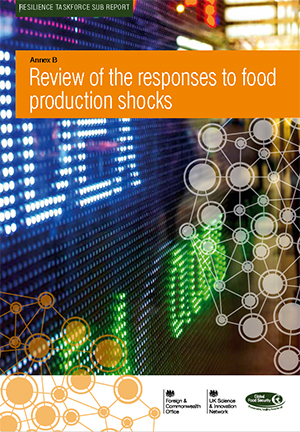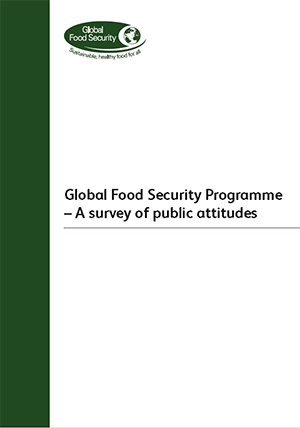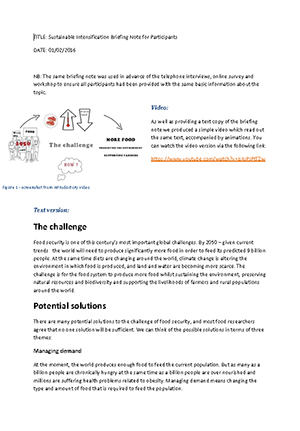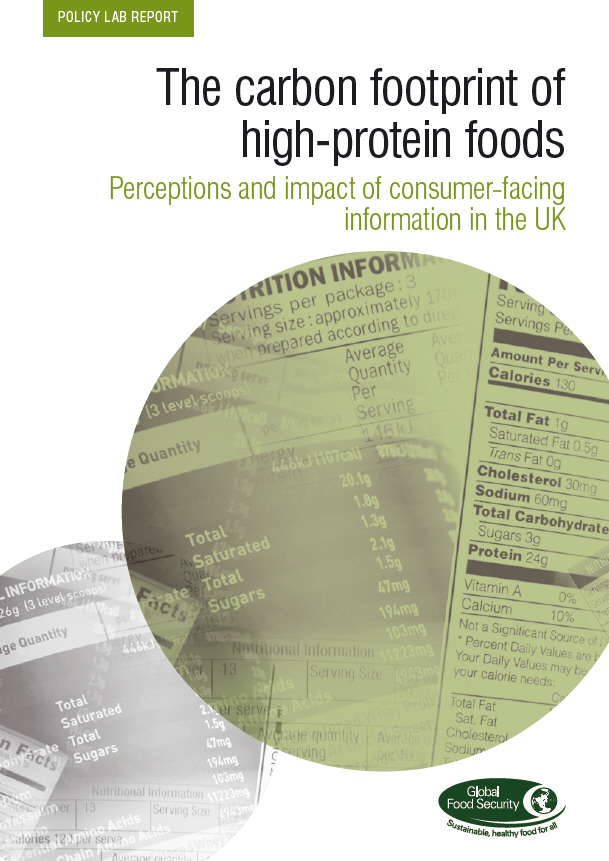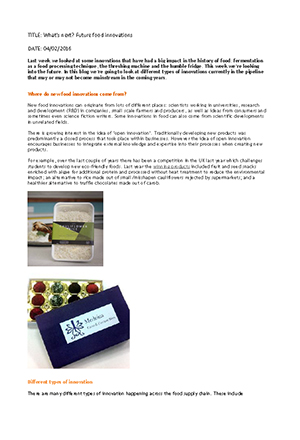
Food Futures Panel: What’s next? Future food innovations
The GFS programme commissioned a panel of 600 members of the public to take part in engagement activities, exploring different aspects of food security research. This document details stimulus material for the food innovations dialogue.
(You can view PDF documents by downloading a PDF reader. We recommend using Google Chrome or Mozilla Firefox web browsers.)


